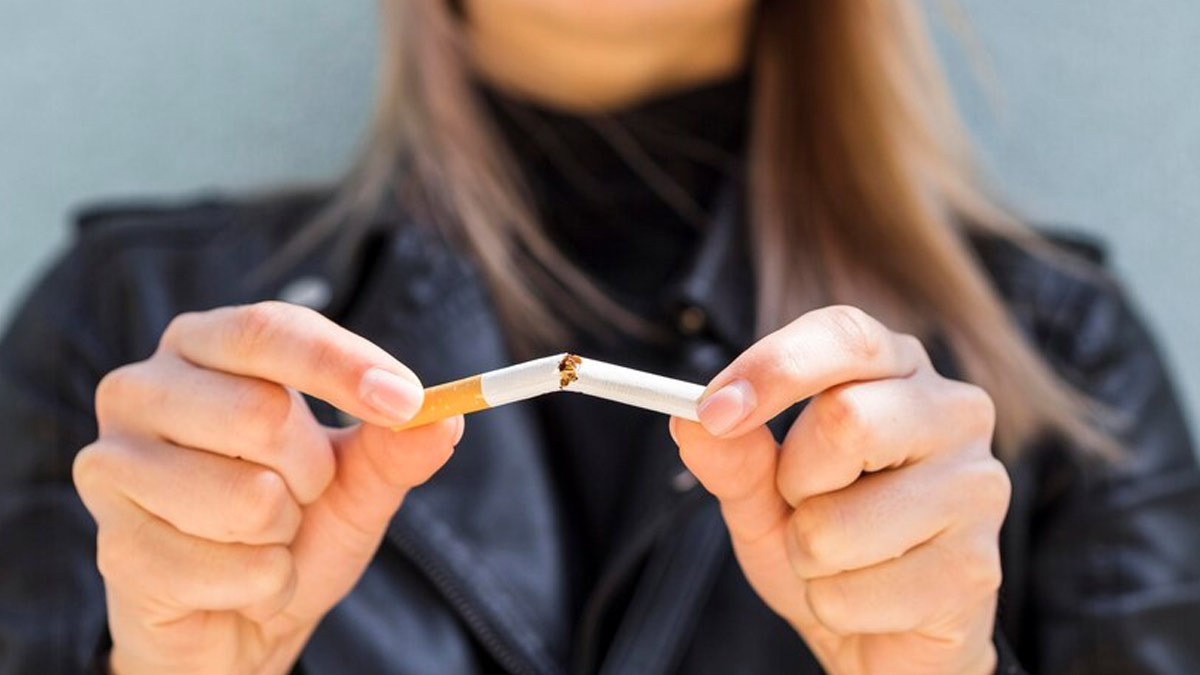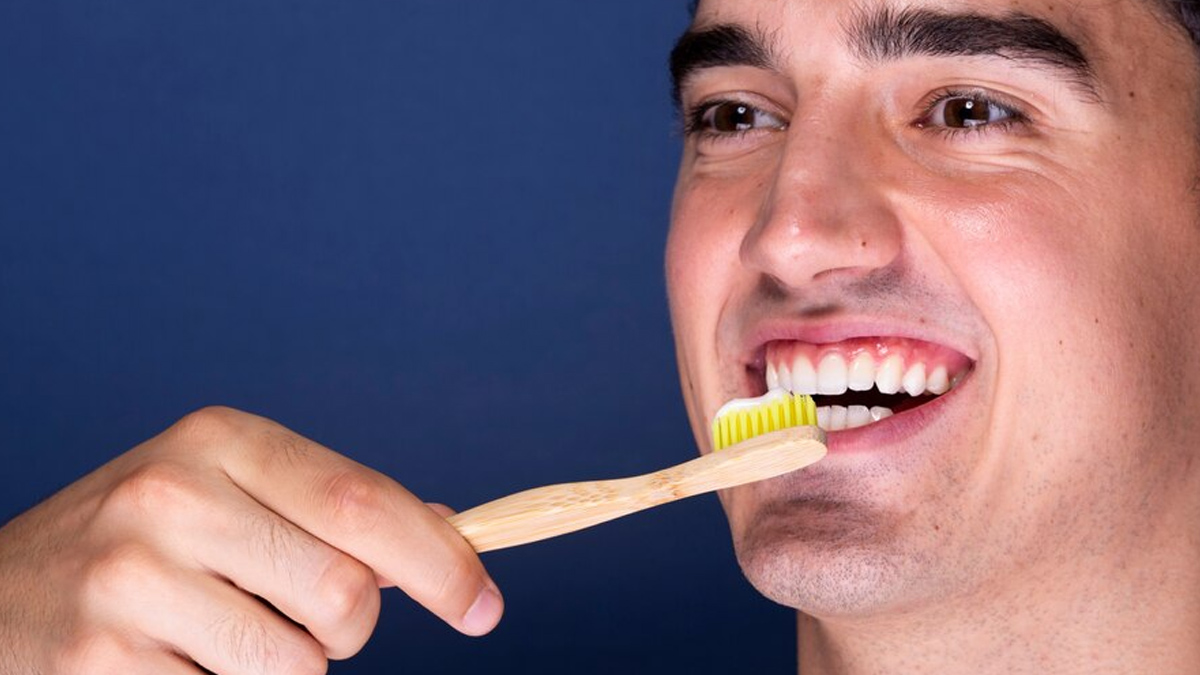
Smoking is the root cause of several health problems. It is one of the leading risk factors for heart disease, lung cancer, and reproductive diseases in both men and women. However, one aspect of our health that we tend to ignore is our dental health, which is also negatively affected by smoking.
Table of Content:-
In fact, cigarettes, smokeless tobacco, and other forms of tobacco are the leading causes of oral cancer, gum disease, and other oral health problems, according to the US Centers for Disease Control and Prevention (CDC).
Smoking And Gum Disease

According to Dr Shilpa Khullar Sood, Prosthodontist and Implantologist, Professor, and Head Department of Dentistry, Amrita Hospital, Faridabad, smoking can increase the risk of gum or periodontal disease.
Gum disease is an infection that can affect the bone structure supporting your teeth. In severe cases, it can make your teeth fall out, as per the CDC.
Dr Khullar explains, “Tobacco reduces blood flow to the gums, making them more susceptible to infections. This can lead to inflammation, bleeding gums, and eventually tooth loss if left untreated.”
Also Read: Expert Unveils the Link Between Smoking, Weight Gain, and Belly Fat Accumulation
Warning Signs Of Gum Disease
Common symptoms of gum disease include:
- Inflamed, swollen gums
- Tender or bleeding gums
- Pain while chewing foods
- Loose teeth
- Sensitive teeth
- Gums that have pulled away from your teeth
Yellowing Of The Teeth

It is important to note that smoking can stain teeth and cause persistent bad breath, says Dr Khullar.
She explains, “The tar and nicotine in cigarettes contribute to the yellowing of teeth over time, which can be challenging to reverse without professional intervention.”
On Quitting Smoking
According to Dr Khullar, quitting smoking can greatly benefit dental health.
She says, “Within weeks of quitting, blood flow to the gums improves, reducing inflammation and lowering the risk of gum disease. Stopping smoking also prevents further staining of teeth, allowing them to regain their natural colour with proper dental care.”
To quit smoking and avoid relapsing, here's what you can do:
- Pick a specific date to stop smoking.
- Recognise situations that make you want to smoke.
- Replace smoking with healthier habits.
- Tell friends and family about your decision and consider joining a support group.
- Get rid of cigarettes and smoking-related items.
- Drink water, exercise, and try nicotine replacement therapy to manage withdrawal symptoms.
- Seek professional help.
- Keep occupied with activities to distract from cravings.
- Celebrate milestones and achievements along the way.
- Most importantly, understand that quitting is a process and keep trying.
Also Read: 6 Ways Smoking Affects Your Body Other Than Damaging Your Lung Health
Oral Habits To Follow
Oral health is extremely important. And besides quitting smoking, there are other ways to take care of it. This includes:
- Brushing teeth at least twice a day
- Flossing daily
- Using mouthwash to remove plaque and bacteria
- Going for regular dental check-ups and cleanings
- Adopting a healthy diet rich in fruits, vegetables, and calcium
- Drinking plenty of water flushes away food particles and bacteria, reducing the risk of cavities and decay.
For people who smoke, quitting smoking and adopting good oral hygiene practices are key steps towards improving dental health and preventing future complications. Remember, oral hygiene and dental health are as important as your lung, heart, or liver health. Ignoring or not recognising the importance of caring for your oral health may backfire.
Also watch this video
How we keep this article up to date:
We work with experts and keep a close eye on the latest in health and wellness. Whenever there is a new research or helpful information, we update our articles with accurate and useful advice.
Current Version